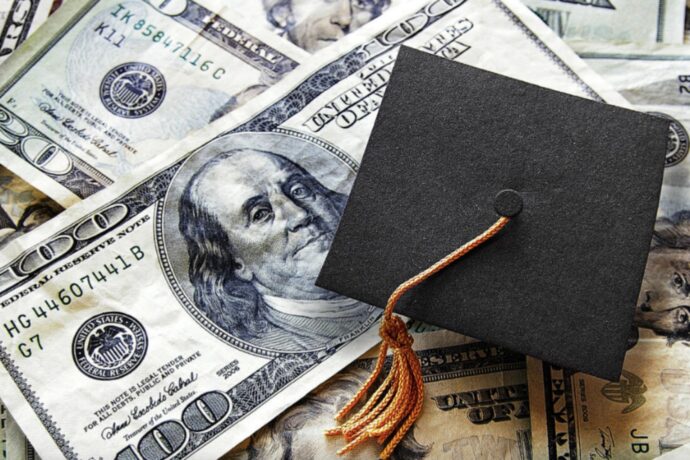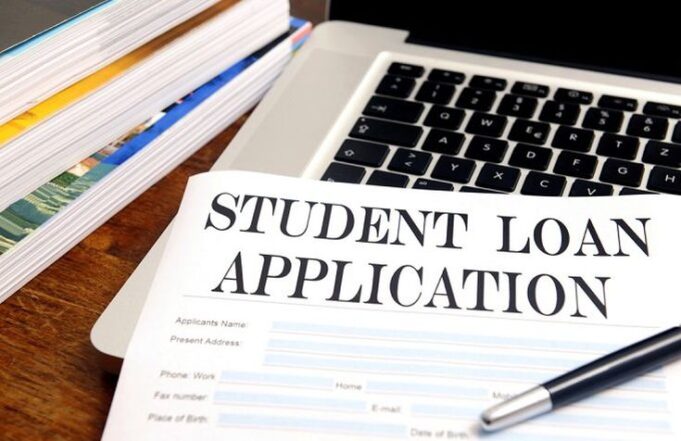Are you a student considering taking out a private loan to help finance your education? It’s no secret that higher education can be expensive—even with financial aid, scholarships, and grants in place.
Moreover, there can be many other types of private and personal loans, such as student loans. However, the real question is: is it worth taking out a private loan for students?
Well, this blog post will explore the benefits, drawbacks, and overall value of getting a private loan as an undergraduate student.
So, we’ll look at different types of loans available for students, answer some common questions about private loans, and explain how you can get started applying for them if necessary.
Therefore, read on to find out if taking a private loan as an undergraduate is worth it!
What is a private loan for students?
Private student loans, in contrast to federal student loans, are issued by private lenders such as banks, credit unions, and online money services to help pay for higher education.
Private student loans should be used to fill the funding gap that remains after federal help has been depleted.
Undergraduates typically need a cosigner to secure a private loan. There are private specialty lenders who don’t verify clients’ credit histories before making loans, but their rates of interest are substantially higher.
Applying for a private graduate student loan could be easier with a cosigner. Cosigners are usually not allowed for borrowers of private parent loans.
What are the repayment terms for a student loan?

It’s important to remember that the repayment terms for a private student loan will vary depending on the lender.
Also, most federal loans have a ten-year repayment period. However, some lenders provide only a single 10-year repayment plan. The remainder has agreements that extend between five and fifteen years.
Moreover, if you borrow money from a private lender, you might be able to put off making payments until after you’ve finished school.
However, private lenders may require you to make fixed or interest-only payments during your enrollment. You might not have any financial obligations for up to six months after graduation.
Therefore, if you miss making a payment on your loan during the grace period, interest will start to accrue on that day. Interest accrued up to the beginning of repayment will be applied to the main balance.
Are private student loans risky?
There’s a natural inclination to wonder if you can get a better interest rate elsewhere, given that the federal government wants to raise interest rates for students borrowing money for college in the 2022-2024 school year.
This happens because companies that offer private loans for students advertise lower rates and fixed rates. However, it can be risky to get a private student loan.
Moreover, when compared to government student loans, private loans pose a higher risk of overextension since they lack a safety net.
This way, there are caps on how much can be borrowed with both federal and private student loans, but the latter often allow for more.
So, as private loans allow you to get more money, you may get more debt if you cannot repay the loan.
Pros and cons of private student loans

Because of their low-interest rates and payment flexibility, federal loans are the greatest option for financing higher education.
Also, if federal aid falls short, though, students can turn to private student loans to make up the difference.
However, you should think long and hard about taking out a private student loan before deciding whether or not to do so.
Therefore, we prepared a list of the main pros and cons of getting a private loan for students. So, read on!
Pros
- You can get rewards if you have a good to excellent credit score;
- There are higher loan amounts;
- The application process can be hassle-free;
- You can get your student loan funds faster.
Cons
- You can get higher interest rates;
- If you don’t make your loan repayments, you may get high late payment fees and get into more debt;
- There are no federal-related benefits;
- You may not be able to get a private loan for students if you don’t have a cosigner;
- Since private loans offer much higher loan amounts, you may overborrow money and be unable to pay for it afterward.
So, now that you know about the pros and cons of getting a private student loan, you can make a more informed decision on getting one or not.
However, before you decide, you should learn a bit about how federal student loans work. So, you can read our topic above to keep learning about student loans!
What about federal student loans?

One option for financing higher education costs is the Federal Student Loan Program, also known as a “government loan.”
Moreover, you can have certain flexibility when it comes to federal student loans, such as changing repayment options after you’ve started your payments.
In addition, unlike private student loans, you don’t need a high credit score to get a federal student loan.
Plus, the perks that come standard with federal student loans are not available if you take out a loan from a private company.
Also, private student loans make it far less of a hassle to borrow money for an uncertain investment like a college education.
However, you should also know that you can get your student loan refinanced in certain cases if you make private student loans.
Should you get a private student loan?
The convenience of private student loans should not be confused with their value. Compared to federal student loans, private loans for higher education can be significantly more expensive and offer less protection.
It’s important to weigh all of your educational financing alternatives carefully before committing to any one plan and to be aware that your choice will have both positive and negative repercussions.















